The Extraordinary Power of Marine Microbes
The vast majority of humans may think that organisms appearing to the naked eye constitute nearly, if not all of ocean life: small and large fishes, algae, sharks, turtles, dolphins. However, it may seem unbelievable for some, but the most abundant living entities in the ocean aren’t that large in size, and are represented by tiny organisms that are too small to be seen without the aid of a microscope. Microbes are the unseen, invisible majority that populate every ocean and sea. Imagine that just a few drops of ocean water are home to millions of unicellular organisms, while the same is the case for a small coffee spoon of ocean floor material, resulting in trillions and trillions of small-sized creatures populating the seas.
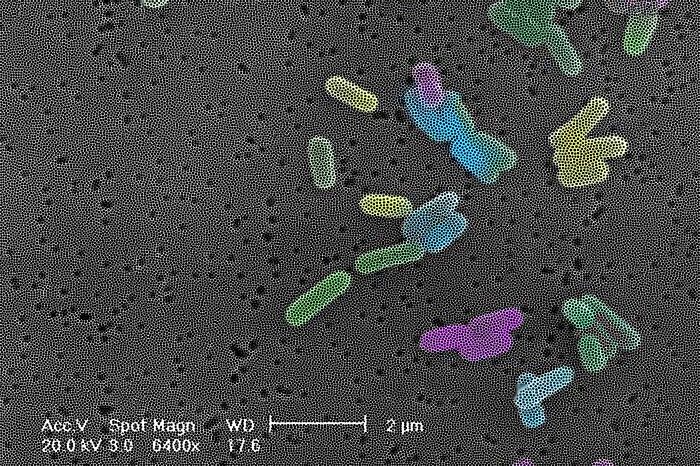
Aquatic bacteria observed by SEM (Scanning Electron Microscopy)
Thinking about this almost uncountable number of single-celled microbes that reside in the global ocean, from its sunlit surface to the dark abyssal zones, can make one feel disoriented. Today, the importance of the ecological services that are supplied by this marine microbial world is well recognised by scientists, but probably less so by citizens. Acting as minuscule life machines, these tiny organisms perform a wide variety of daily biological processes that are essential to sustain our own life. They help us breathe, producing more than half the oxygen on the planet. In this way, they continuously provide us with one of the most essential molecules that we require to live. By feeding on the dead carcasses of fishes, along their slow descent through the water column to the seafloor, they recycle nutrients and consequently fertilize the ocean, driving one of the most essential phenomena on the planet. Through this incessant recycling process, which allows microbes to eat and grow, they transform dead matter into new, living matter, represented by their biomass and that of their descendants. The same living matter later becomes food for those larger organisms that are able to prey on microbes. This apparently rudimentary process sustains the whole intricate marine food web that inextricably connects all aquatic life forms, from the smallest microbe to the largest whale, across the timeline of the evolutionary history of life.
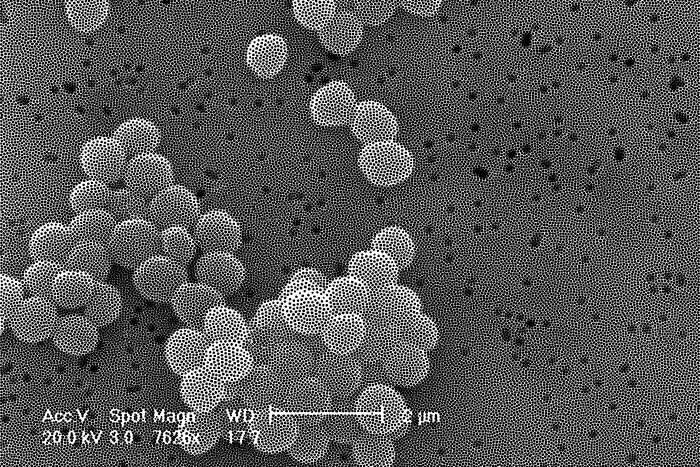
Aquatic bacteria observed by SEM (Scanning Electron Microscopy)
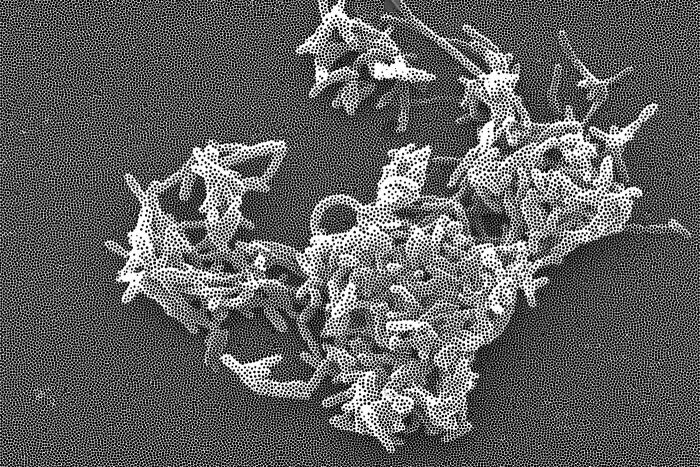
Aquatic bacteria observed by SEM (Scanning Electron Microscopy)
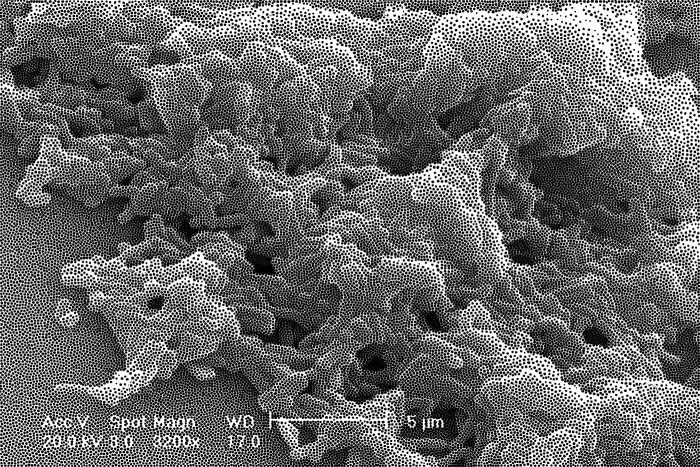
Aquatic bacteria observed by SEM (Scanning Electron Microscopy)
Microbes can also decompose all kinds of pollutants that we release, at unprecedented rate, into the coastal ocean, by transforming compounds that are poisonous for aquatic organisms into safer chemical molecules. The recent discovery of the microbially-mediated degradation of plastic, recognised as one of the most widespread pollutants in the global ocean, is just one among numerous examples that show how aquatic microbes are useful to make the sea cleaner. Another example is the capability of certain marine bacteria to feed on crude oil, and to decompose it down to elemental and innocuous nutrients. Petroleum is another common pollutant that is spreading increasingly across the ocean, as a consequence of the growth in maritime traffic, enhanced by today’s ease of overseas shipping, and the increased human ability to extract petroleum from the ocean floor and transport it by sea, an activity that sometimes causes environmental disasters that capture public attention. This, and many other important processes of microbial decontamination, significantly mitigates human impact on the planet.
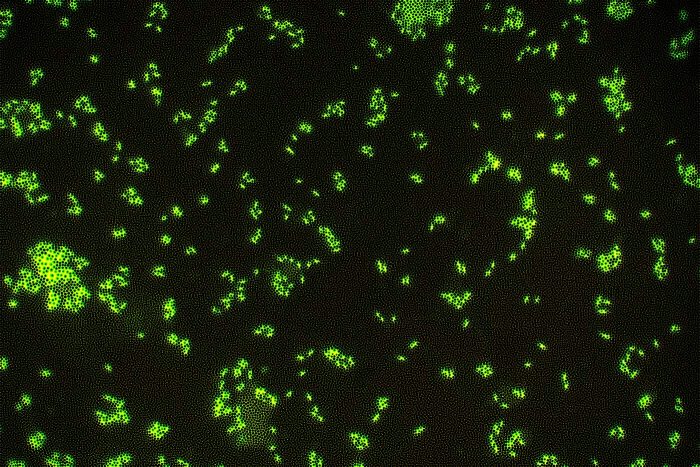
Aquatic microbes from seawater samples observed by epifluorescence microscopy, after staining with fluorochromes that bind to their DNA
Microbes also have a hand in maintaining the planet’s climate, by regulating the exchange of gases between the ocean surface and its surrounding atmosphere. Eventually, certain microbes are able to produce a number of molecules that help us in successfully treating prevalent diseases, such as cancer and infections. Here I will take the audience into the awesome world of marine microbes, the different types of microbes the ocean is home to, and the fundamental processes they perform every day to make our planet habitable. We will explore the invisible life in the ocean and some of its secrets, unknown to science until relatively recently. Due to huge developments that occurred in several fields of science, among which biological oceanography, aquatic microbiology and molecular biology, we as scientists today know how important microbes that live in the ocean are to sustain the life on this planet, and to retain it habitable. I want to make you, as citizens, more aware about how important marine microbes are for our wellbeing, and for helping us face the wealth of environmental challenges, among which increasing pollution, climate change, global warming, and the spread of diseases. All of these issues are characteristic of this century and are expected to continue to be. Addressing and mitigating these problems is of vital importance for us, and, perhaps more importantly, for the next generations to come.
About the Author
Gian Marco Luna is research scientist at the Institute of Marine Sciences (ISMAR) of the Italian National Research Council (CNR). He holds a degree in Marine and Oceanographic Biological Sciences from the University of Ancona (2001), and a PhD in Marine Biology and Ecology from the Polytechnic University of Marche (2005). His research investigates the role and biodiversity that aquatic microbes play across the global ocean, spanning from the more human-impacted coastal ocean to the dark, and still mostly unknown, deep abyssal layers.